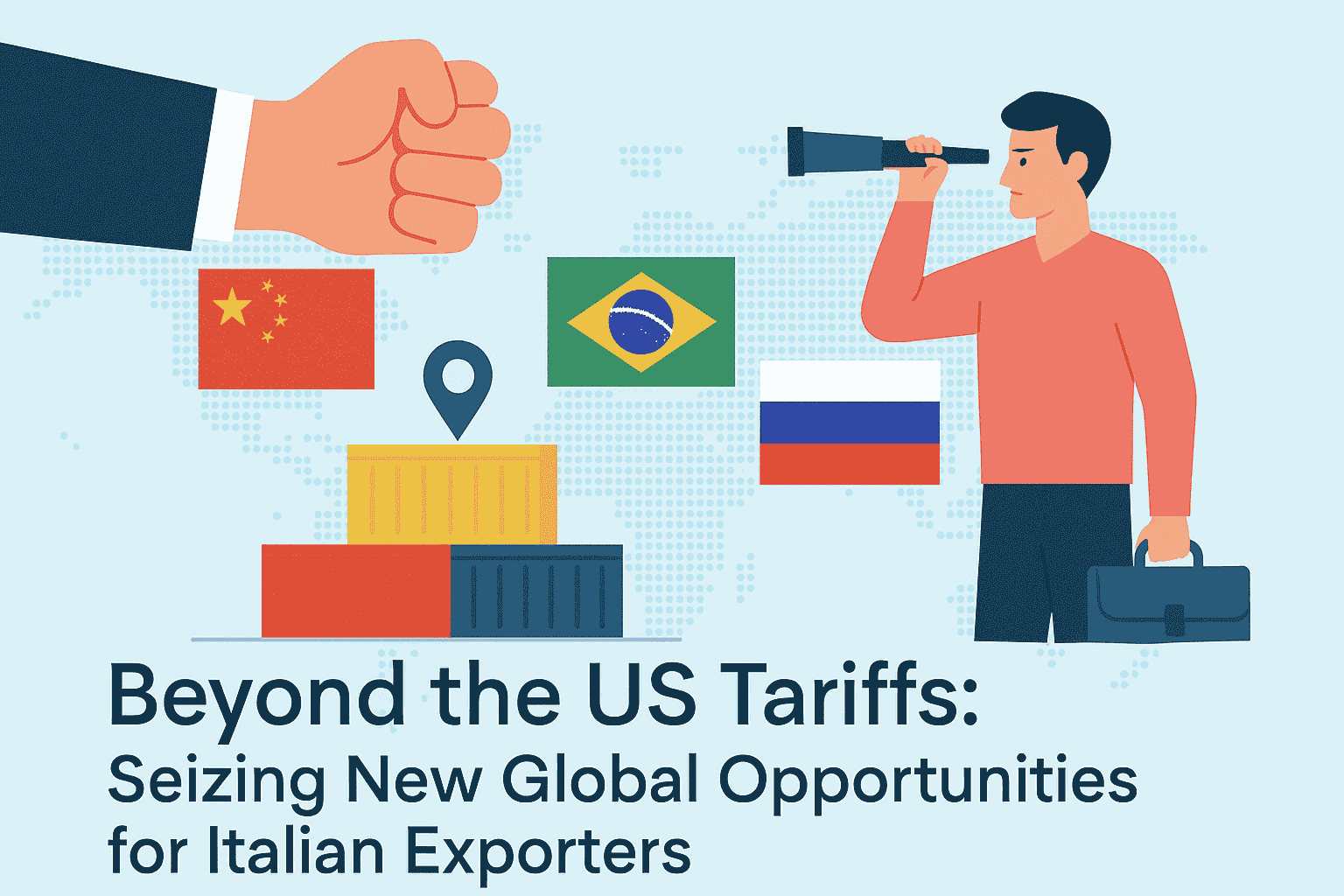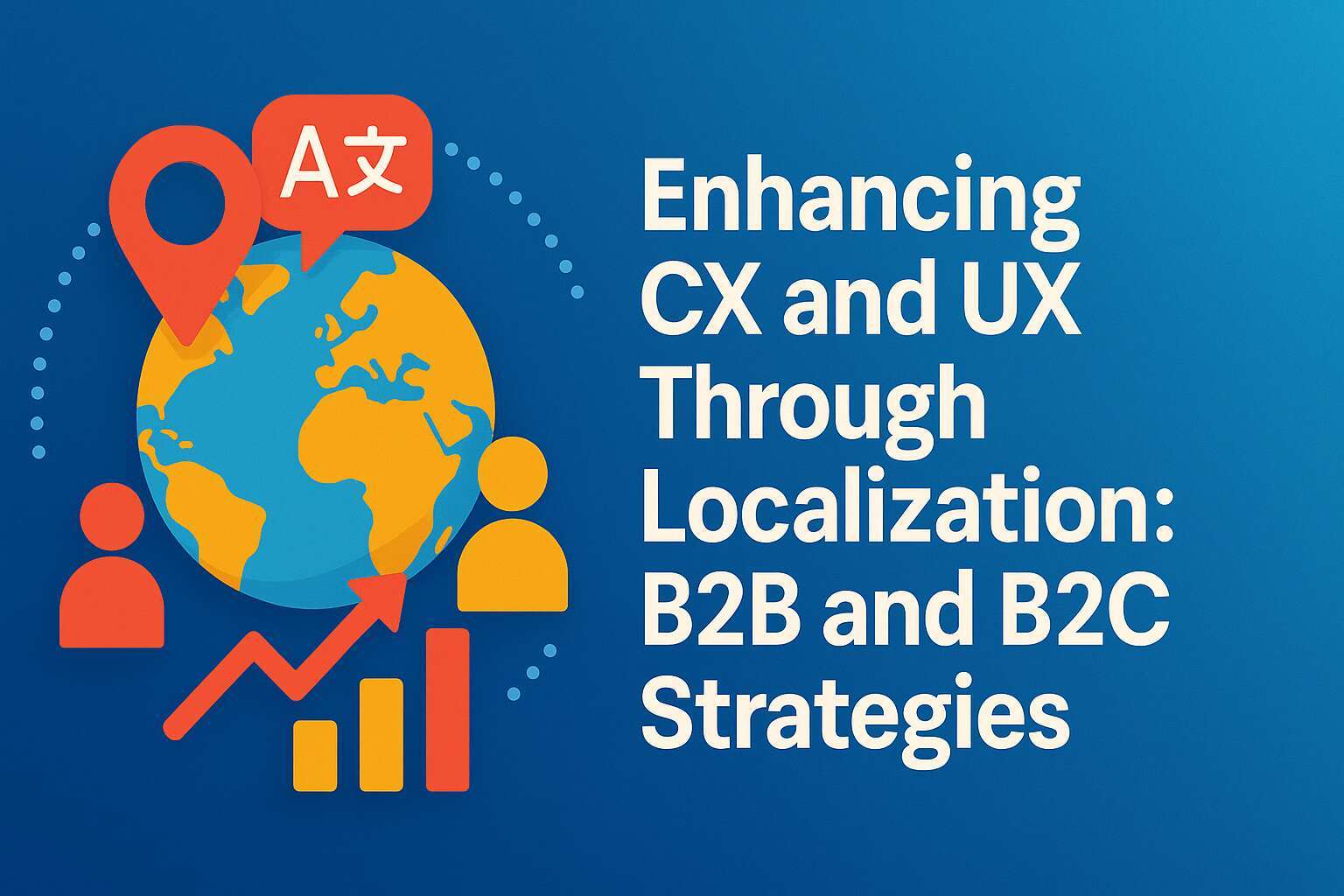Reading time: 3 minutes
In recent months, the United States has implemented a series of tariff increases and trade restrictions aimed at protecting domestic production and rebalancing the trade deficit. While these measures may serve short-term economic and political interests, they are generating ripple effects across global supply chains — and particularly impacting countries like Italy, whose manufacturing sector has long relied on exports to the US market. Here you can read a recent MoneyWeek article on the subject.
But in every challenge lies an opportunity.
For Italian exporters, the tightening of access to the American market might represent a powerful push to diversify their international strategy. In particular, new and growing commercial opportunities are emerging in markets where English is not the primary language — from the Arab world to China, from Latin America to Russia and Central Asia.
Let’s explore the strategic implications of this shift, and how professional translation and localization services can play a decisive role in transforming linguistic barriers into competitive advantages.
The Decline of US-Centric Export Strategies
Historically, the United States has represented a key destination for Italian-made goods — especially in sectors such as machinery, fashion, design, and agri-food. However, recent US tariff hikes on a wide range of products (including metals, automotive parts, and food items) are making it increasingly complex and less economically viable for many Italian companies to maintain their market positions overseas.
As a result, more and more exporters are reconsidering their priorities — shifting focus toward countries with growing demand and friendlier trade conditions. This includes economic powers such as:
- China: Where demand for high-end European quality products remains strong;
- Saudi Arabia and UAE: With their ambitious investment plans and appetite for innovation;
- Mexico and Brazil: Two strategic access points to the entire Latin American continent;
- Russia and CIS: Despite geopolitical tensions, many Italian companies maintain strong ties with Russian buyers, especially in luxury and industrial goods.
Language as the New Trade Frontier
Unlike the US and much of Northern Europe, these alternative markets do not operate predominantly in English. In order to effectively communicate value, build trust, and comply with local regulations, businesses must go beyond simple translation and embrace full-scale localization strategies.
This involves:
- Adapting marketing content, product descriptions, and user interfaces to local cultural expectations;
- Ensuring legal documents, certifications, contracts, and packaging are accurately translated and legally compliant;
- Customizing SEO strategies to align with local search engines and customer behavior (e.g., Baidu in China, Yandex in Russia).
Failing to do so can lead to misunderstandings, legal risks, and loss of brand credibility — especially in markets where relationships and reputation are everything.
The Role of Professional Language Services
InnovaLang specializes in helping Italian businesses expand into complex, multilingual markets. Our team of expert linguists, legal translators, and localization strategists ensures that every word supports your brand and opens doors to new partnerships.
Here’s how we can help:
- Translation and localization in over 50 languages, with native-speaker experts in each market;
- Multilingual SEOÂ to boost online visibility and lead generation in non-English search engines;
- Compliance and certification support for technical and regulatory translations;
- Cultural adaptation of websites, brochures, contracts, and multimedia assets.
Exporting to Grow, Localizing to Win
Now more than ever, Italian exporters must think globally and act locally. Diversifying markets is a smart strategic move, but entering new linguistic and cultural contexts requires preparation and expertise.
Professional translation and localization are not just technical services — they are a strategic investment. An investment that can turn the current challenges of global trade realignment into long-term competitive advantages.
At InnovaLang, we are ready to guide your brand into new worlds of opportunity.






